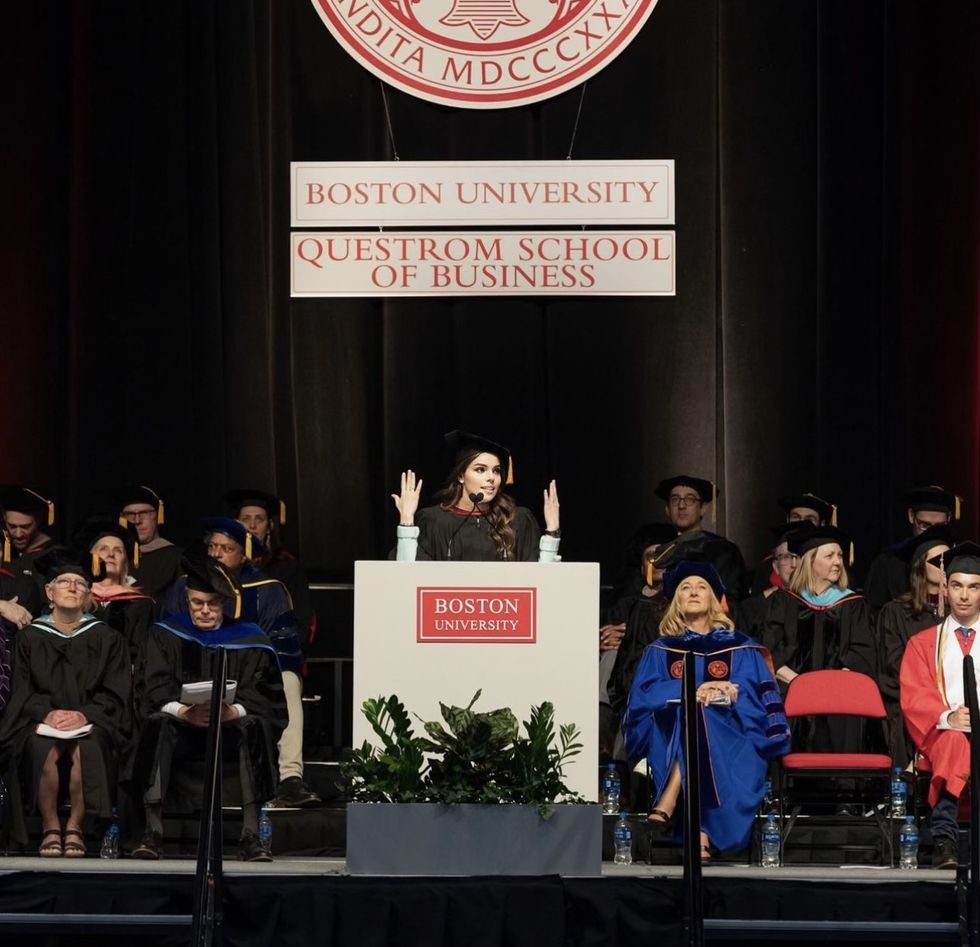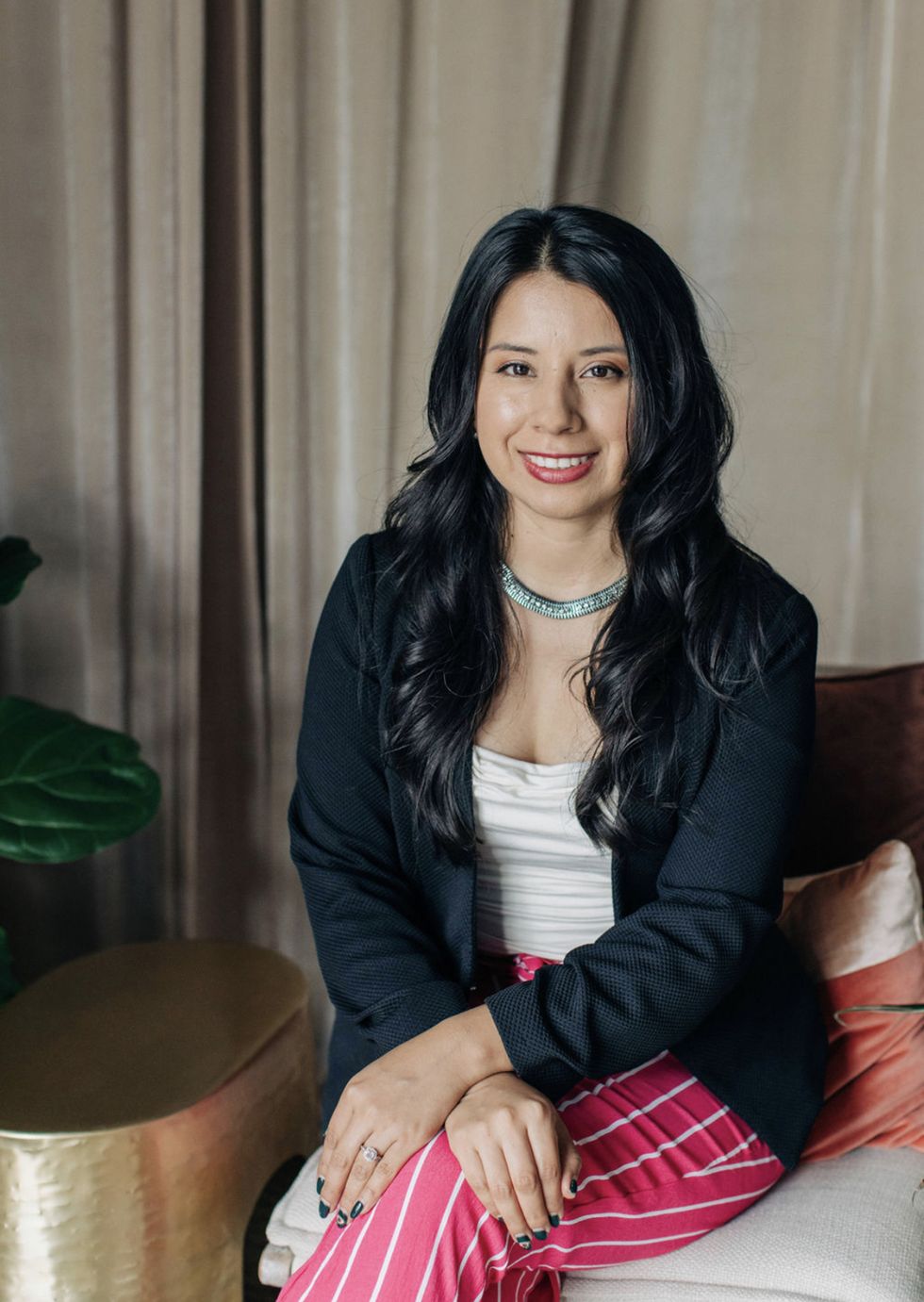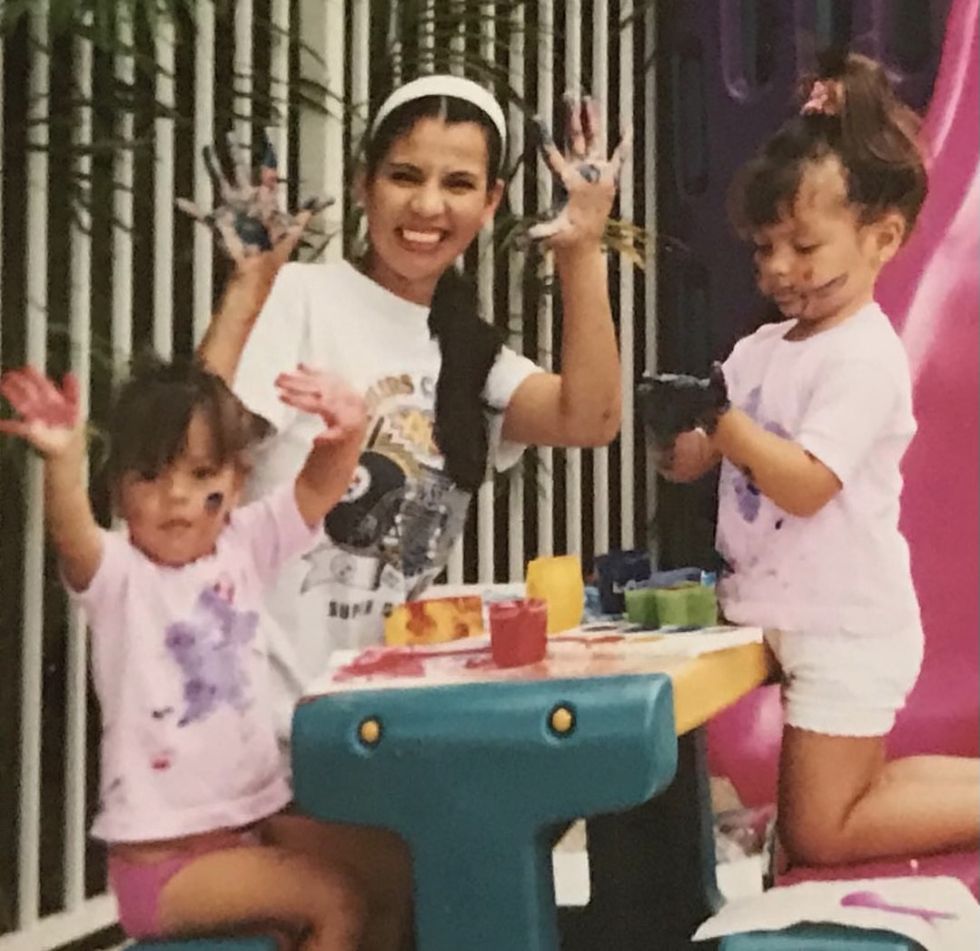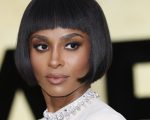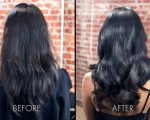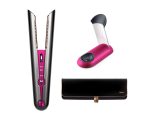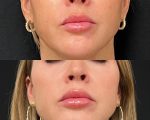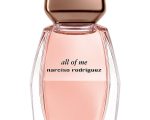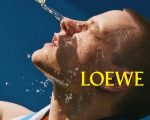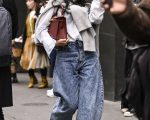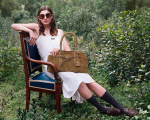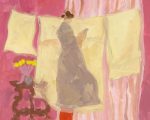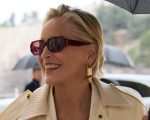The original post is located at www.elle.com
There’s an instant camaraderie that forms when three Latinas sit down together—especially when we’re all from roughly the same generation. The Gen Z and millennial demographic in the U.S. may be some of the first who finally feel like they’re able to speak candidly about wellness in a way our parents didn’t feel comfortable doing until relatively recently, if at all. One cursory scroll through TikTok and you’ll discover that young people are now growing up with a hyperawareness of their own mental health struggles. Having a therapist is finally cool (and still too expensive). But for Daniella Pierson, the half-Colombian entrepreneur who co-founded The Newsette and Wondermind, and Adriana Alejandre, the Guatemalan-Mexican podcaster and therapist behind Latinx Therapy, getting to a place where they could openly discuss their struggles, and help others do the same, took grit.
Pierson, who, at the ripe age of 27, was named “the youngest, wealthiest self-made woman of color in the world,” by Forbes, thought speaking about her OCD and ADHD would jeopardize her relationship with potential business partners. “I wasn’t able to get VC funding,” she tells ELLE.com. “I was not gonna wave around like, ‘Hi, I also have a mental illness.’” Her most recent venture, Wondermind—which she co-founded with Selena Gomez and Mandy Teefey, Gomez’s mother—offers tools, resources, and daily practice for anyone looking to improve their mental fitness.
In both Alejandre and Pierson’s families, discussing these issues growing up wasn’t an option. After battling with postpartum depression and seeing a therapist for the first time, Alejandre remembers the conflicting emotions of loving the session, and fearing the reaction at home. “After the first session, I kept hearing my mom’s words: ‘We fix problems in the family.’” Ultimately, Alejandre embraced the unknown, choosing to study psychology and eventually becoming a licensed therapist and mental health podcaster, where she covers topics like PTSD, anxiety, and dissociation in both English and Spanish.
Here, more from our thoughtful discussion about mental health, food as therapy, and the Latinx trailblazers they need you to know about.
ELLE: How did you both get started working in the mental health field, or mental fitness, as Daniella says?
Adriana Alejandre: I landed in the mental health field by accident, in a way. I didn’t realize that I was struggling with postpartum depression after having my son during my first year of college. I went to office hours for a psychology professor’s course, and he suggested that I go to the counselor’s office and talk to somebody. I remember walking out and thinking, “Why didn’t I ever think of going to a therapist myself?” After the first session, I kept hearing my mom’s words: “We fix problems in the family. You don’t need to talk to anybody because we fix them in the family.” I remember how good it felt to talk, and that’s really what sparked my interest in changing my major to psychology and exploring becoming a therapist.
Daniella Pierson: It was definitely not something that I ever planned on. When I was six or seven years old, my parents would see me look under the bed before I went to sleep, and if the pantry door was open ajar, I had to go close it. It almost became this quirk that my family laughed at, because they thought I was trying to get attention. They had no idea that it had to do with mental health. That was not something that we were talking about in our family, ever. And the first time I figured out I have OCD was when we had health class freshman year of high school. And I was like, “Oh my God, that’s what I have.” I said, “Mom, can I go see a therapist?” We definitely had the ability to go to a therapist. That’s the saddest part—so many people don’t have that ability. And my mom said, “Absolutely not.” My dad didn’t even want to hear it. I really suffered in silence as a child.
When I was about to graduate college, my mental health became debilitating. I used my savings to go see a therapist and a psychiatrist. And that changed my life. I actually remember being a senior and seeing on the news that Selena Gomez publicly said she has mental illness and was going to a mental health institution. And I remember thinking, “Wow, if she can be so open about that, why can’t I?” I was not gonna wave around like, “Hi, I also have a mental illness.” But then after—I hate to say it—but after I became a multimillionaire at 25, that’s when I felt comfortable enough to speak out about mental health. Everyone says, “It’s so brave of you to be unfiltered about your mental health.” No, that’s not brave of me. It would have been brave if I would have said this five years ago, not when I felt like I could finally speak out and it wouldn’t hurt me in any way.
ELLE: Did you think that being forthcoming about your struggles with mental health would hurt your career?
AA: In a way I did, because I was living with my parents and they were taking care of my son while I studied two hours away. So I felt some sort of obligation to stay true to them by not talking about my problems to a therapist, which was what my mom didn’t want. She just wanted me to go to her, but we never had that relationship. It was always the relationship where I feared her. On the other side, I was working three jobs, going to school, and paying for their mortgage. So, in that sense, they relied on me, and I relied on them. I didn’t have an emotionally safe environment with my mom. I sensed that obligation so that I wouldn’t get kicked out, so that she wouldn’t threaten to not help me with my son, because I knew that college was going to be that savior for me and my family.
ELLE: Do you think your families are becoming more open about mental health because of what you’ve accomplished in your careers?
DP: Yeah, absolutely. Unfortunately, the success in parallel with me being open about mental health had a lot to do with the way my family thinks about mental health, which is sad, because it should be that way even if I ended up not being able to do anything with The Newsette or Wondermind. My mom and I actually had a really big emotional moment when I started Wondermind. She said, “I am so sorry that I was so ignorant to your problems.” Now my mom one hundred percent believes in all mental health and has educated herself on it. I don’t hold it against her, because even 10 years ago, it was not a subject. So I don’t blame my parents for it.
AA: My parents never got the opportunity to go to therapy. I think they embraced mental health when they saw me going through postpartum depression, but they didn’t really know what it was. They were just very concerned. They didn’t have the tools, and they were monolingual Spanish speakers. Once they knew that I going to be okay academically, and I was going to have a future because I was getting my master’s degree, they really didn’t mind if I went to therapy. I remember when I would finish my practicums and come home and see my mom gardening, I would tell her about what I would do at school and she’d always just end up in tears.
My mom is an indigenous Guatemalan woman who suffered a lot. She was never really able to be fully present, even up until when she passed away last year. Never, ever. So it was really sad. I was trying to sow little seeds so that whenever she was ready to explore mental health and therapy herself, she would at least have a little bit of knowledge. She’d be curious, but she would always go back in time and say, “I can never see myself talking about it.” But I think through her and my dad’s behaviors, they were able to embrace self-care, which for mental health goes a long way. I will say that all my siblings have gone to therapy, and some of them are on medication. So I think that my career path and choices have also influenced their embracement of therapy and mental health.
ELLE: Was wellness a big part of your lives growing up?
DP: Yeah. Every single day when I would come home from school, my grandma would have Hispanic dishes for me. She would be like, “Oh, you have no color, come eat this salad.” At least in my experience, Colombians are like, “You don’t feel good? Here, eat this big meal.” That was always a thing. Now, my grandparents and my mom make this tea that has ginger and pineapple in it. So I think that’s a way that they took care of themselves, by putting good things in their bodies. And also a lot of hair treatments made out of avocado and honey. They’re also very into the things that their ancestors did for health. If you weren’t feeling good, they’d wrap a scarf around my neck instead of giving me medicine. It was just very old-school. My grandpa experienced a lot of abuse growing up. He’s never really gone into that, but I almost feel like my mom and my aunt covered it up with food. It almost was like their therapy. And that’s something that I’m realizing now. Maybe the food was their way of making them feel like they’re taking care of themselves when they’re not addressing the actual trauma.
AA: I can definitely relate to the fruit for facials or hair masks. Like many Latino and Hispanic households and immigrant households in general, our families didn’t have the knowledge of how to take care of themselves, especially when there was intergenerational trauma in the lineage. So I think that’s definitely a difficult question. The way that my parents showed that they cared for our emotional health was when they would see us stressed out due to academic stuff, or due to health related reasons. They would tend to me by helping me—reminding me to take breaks, telling me that it would be okay, just validating me. There was never food that was missing. That was something of a priority for our household, regardless of our financial status. We came from a very low economic household. My parents were always scraping by. They worked nights delivering newspapers, up until 7 A.M., and then they’d go sell clothes to apartments out of their van. But we always had beans and tortillas with salt and lemon on them. It was definitely very nostalgic and delicious, thinking back.
ELLE: Who are trailblazers for you that helped champion you in your careers?
AA: There are so many trailblazers in my community from various industries, such as Sarahi Salamanca of Dreamers Roadmap, and the hosts Diosa and Mala from Locatora Radio podcast were the two first trailblazers in my community that I knew of. I didn’t always feel like I fit in with these founders, because I felt that the amount of collaborations they had meant they were unreachable, but that was the imposter syndrome and my anxiety talking. Sarahi, my friend from high school, helped me throughout my speaking engagement career. Hearing her speak publicly about mental health and her documentation status motivates me to this day. Diosa and Mala have been inspiring podcasters since I launched my podcast in 2018 and have maintained creatively unique branding. We have shared mutual respect and connection to the mental health and overall content we share. Specifically, their energy to advocate against patriarchy has helped me connect to the reason why I am an entrepreneur.
DP: For Hispanic Heritage Month, The Newsette actually has this really awesome segment called ¡Que Rico¡, and basically, it’s an interview with different Latina women. They share a bit about themselves and their culture, but then they also share a dish that really had an impact. It’s funny that we’ve been talking so much about food. So much love and sentiment and even hard conversations all happen while you’re eating food in the kitchen, at least with my Hispanic family. As for other people that I look up to, being badasses in general—I’m an investor in Parade, founded by Cami Téllez who’s also Colombian. And I recently spoke in a panel with Babba Rivera who founded Ceremonia, and she’s kicking ass and taking names. Another Latina trailblazer I admire is Birdies founder Bianca Gates. They are true examples of how embracing their Hispanic heritage has uniquely shaped their brands and led to mega success in industries that so often overlook the Hispanic community. There are so many incredible trailblazers at the moment. Filling that gap so that there are more trailblazers is a huge passion of mine.
ELLE: Are there any brands or founders people should be paying extra attention to right now?
AA: In the beauty industry, besides Selena Gomez, I love seeing Julissa Prado glow up! She is the founder of Rizos Curls, which makes products for curly hair. Although I personally do not have curly hair, I love her story as a daughter of hard-working immigrant parents who started creating her products from her cousin’s garage. She is open about talking about mental health, and is also very humble when it comes to helping other entrepreneurs. I think people should also be paying attention to Luis Cornejo, who is a queer therapist and fashionista. Luis promotes mental health on the runway and through their social media platforms.
ELLE: What’s one piece of advice you’d give to the younger generation?
AA: I remember being told, “If it doesn’t exist, you can create it.” I always like to motivate others. I think we tend to get stuck in the parameters, being in this box or just doing it in the way someone else has done it, but we can be creative. Yes, the road may look scary, but follow your vision, follow your heart, and ask questions. Accept rejection and continue asking questions because you gotta believe in yourself.
DP: Nobody can tell you what you can and can’t do unless they have a crystal ball. You’re the only person that can decide that. I was told by everyone, “You can’t do this, you can’t do that.” But if it was easy, everyone would do it. So just take everybody’s feedback with a grain of salt. The only person that decides your destiny is you. And if you really want to do something, there’s no one that can stop you.
This interview has been edited and condensed for clarity.
